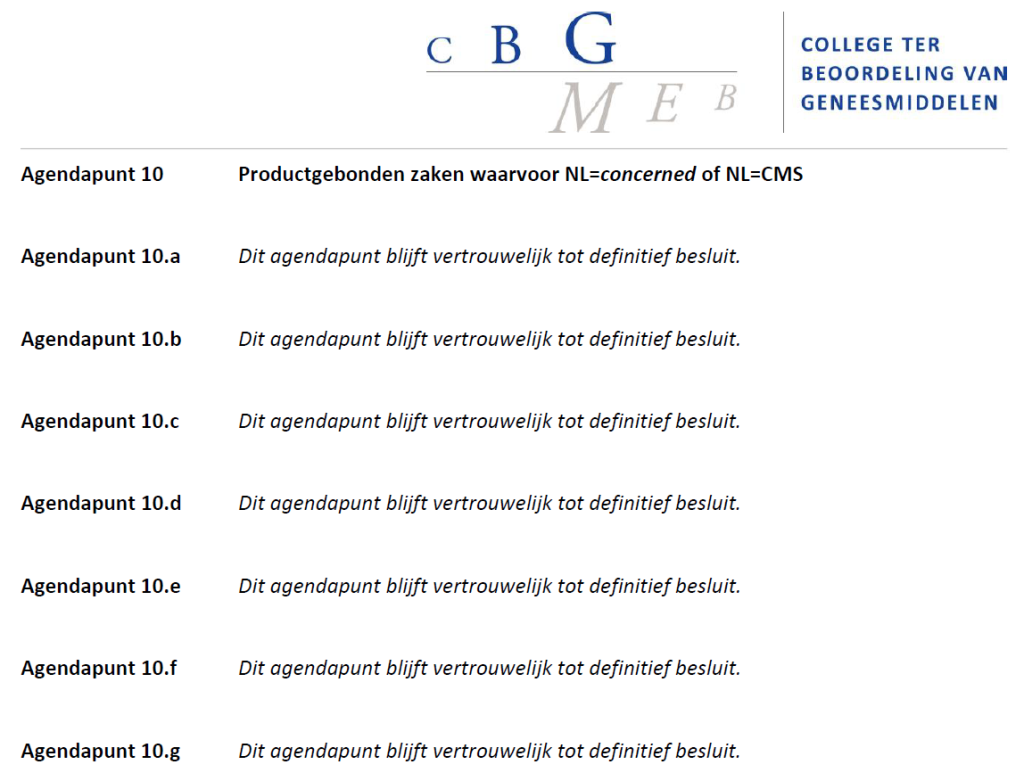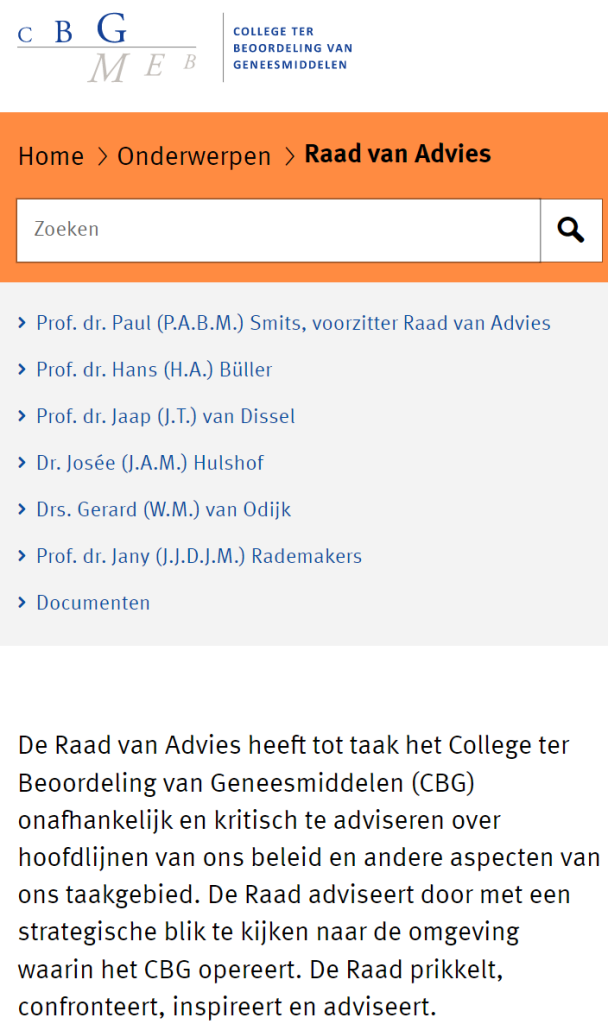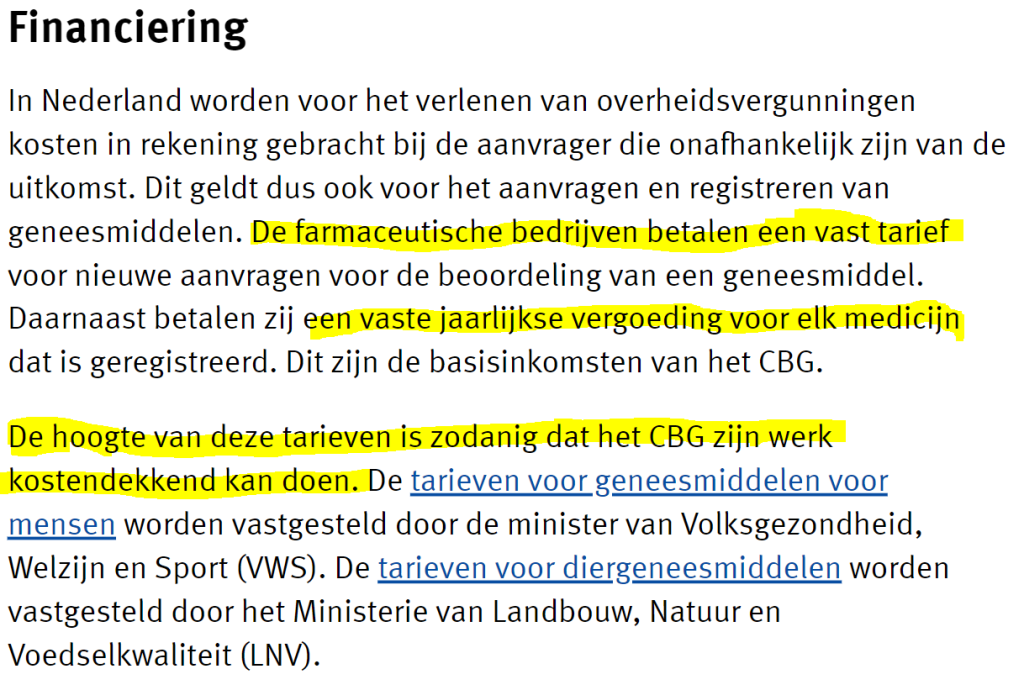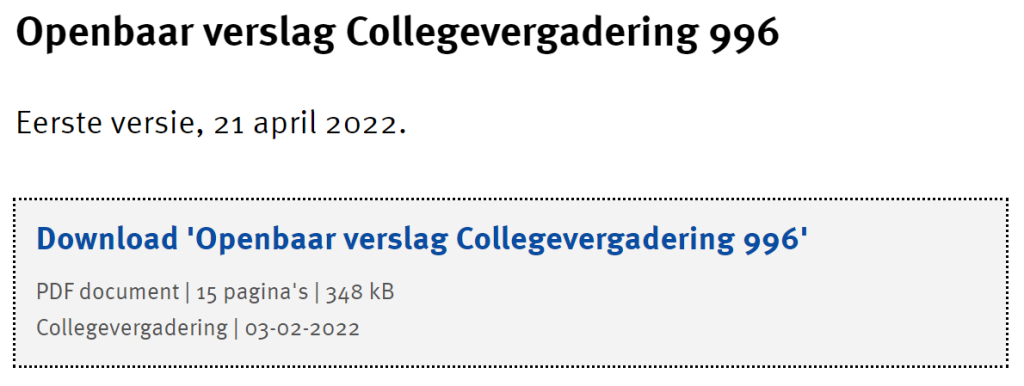Maurice de Hond has rummaged through 70 pages of WOB documents regarding the Maassluis issue, that's how he blogs today. It was about that care institution where a number of elderly people had died because the government had been negligent in taking adequate measures β and many more would follow. The correspondence from RIVM and VWS about this reflects what we already understood and what was also communicated: aerosols should not be taken seriously at all costs. Unfortunately, the reason for this is not clear and that was actually what I had hoped for. There are passages painted black, there is a good chance that they could have clarified something. What is that, "publicity" in theory and in practice?
Van Dale dictionary:

"Something"...?
"Something" can strictly speaking stand for "A part", "A detail", "A few things", "Something irrelevant", "That which one wants to say" etc. However, this narrow view does not fit with the word "Openness". If something has to be made public, it is precisely because parts are probably not public and others are, leaked or made public but incoherent or whatever. So that means the request to "make something public in its entirety", not just "make some of it public". It's about transparency and partial darkening is simply not part of that.
β¦ and that the RIVM does not agree with it. A certain fragment about the ventilation had to go, but has been blacked out in the WOB document.
Maurice de Hond about an email from RIVM to GGD about adjustments to the draft report
So we are not allowed to know in detail how the decisions were made, what was considered, or actually not at all. While that is precisely about administrative decision-making. That a crucial concept such as "scientific integrity" is only maintained by the government for the stage was already clear But is our "publicity" just such a wax government nose?
Disappointment
When Peter de Man was at Op1 and talked about RIVM's obstruction of investigations by the GGD into aerosol spread, I thought we were looking at the breakthrough we had been waiting for for months. Scientifically it had been demonstrated many times - if you look back with today's knowledge: decades ago - how respiratory viruses spread, but there is a select club of virologists who distinguish themselves by classical views. The "real" experts.
From everything it was and is clear how they turned in corners to keep their big drops upright. I had hoped for additional information in the WOB documents, something of a motivation to work so unscientifically and to violate truth and science. Unfortunately... Presumably the only interesting new information is in the blackened piece. I've seen that before: it seems that if something becomes incriminating, that's a reason to paint it black. How this can be accepted under the law "openness" β I don't understand it.
They don't want a sounding board but an echo well
Ronald Meester, professor of statistics at VU Amsterdam, is a member of the sounding board group of a study into excess mortality by RIVM/CBS. Not to be confused with the research referred to in the Omtzigt motion in which external evaluation was requested. It was simply not implemented, with the defense plea of RIVM/CBS as a sop. The master is allowed to supervise to see if the realization of this is going well. He is only not allowed to see the data. What do you mean publicity...
How would the government respond to: "I'll tell the tax inspector how it went; Unfortunately, he doesn't get to see my statements".
The WOO
The WOB has been changed to the WOO as of 1 May: the B of Board has been replaced by the O of Government. As a result, non-government administrations such as large NGOs (NG stands for Non-Government) will be released from the duty of public administration. Also think of global ideal, climate and health organizations. All kinds of things can be communicated there without the risk of it ever ending up on the street, with parties involved but also publicly, from campaigns to nudging. Even if these NGOs are (largely) funded by governments.
On rijksoverheid.nl I wanted to find out what can actually be painted black. Names and contact details, I understand that, but in my opinion it is also about substantive relevant information. What does the law say about this?

On the website of the government are exceptions that do not need to be made public. Matters that have been communicated in confidentiality, for example. (What is "confidential" information?) Nor should the safety of the Netherlands be jeopardized β I understand that, so if it turns out that the people have been fooled, it must be blacked out. Otherwise you will get riots... That is not good for safety. And maybe someone has to go to court β that is a privacy issue.
The WOO page only talks about whether or not to make it public. There is nothing about making public with black-lacquered passages. Apart from the fact that "environmental information" is apparently a completely different category in terms of public access, 5.1.2.g stands out in particular:
The disclosure of information is also omitted insofar as its interest does not outweigh the interest in the proper functioning of the State, other public bodies or administrative bodies.
Article 5.1.2.g WOO
So the State does not have to cooperate with research into possible failures of its own or that of its institutes...?
Check with a government institute: MEB
The page public access to information on the site of The Central Bureau for Registration of Medicines offers hope: "We publish aagendaand apublic report.β And:

I look in the last minutes, because they say: Minutes are public, including minority opinions.
Agenda item 4 is the Covid-19 update (while there is no more COVID-19 ). Worth reading because the MEB still seems to be based on the situation at the beginning of 2020. Not a word is said about age groups while not only the disease but also the injection turns out differently per age group. Shouldn't age differentiation be part of the job description when assessing medicines?
Agenda item 6 is also about vaccinations.

This speaks for itself, I have no additional comments.
On various pages of the minutes, openness is hard to find: Surely there should be extremely critical reservations and question marks in every minute, I think. The culture that only voices of agreement are allowed to see the light of public access and the rest is discussed confidentially in back rooms is spreading.

This is not possible, you would say. Is it the same with other things that we are not allowed to see? About vaccinations, or excess mortality? Something else that is not convenient for the government or its advisors? Early treatments perhaps? Of course, HCQ, Ivermectin, Budesonide were promising and of course the Pfizer reports were severely below par. But the Minister of Health, Welfare and Sport eagerly listened to the RIVM advice and let the vaccine producers do their thing. Isn't that a hot item at the MEB?
Sensible people should say something about that. Does that 'Board' itself have no supervisors or advisors? And yes, even a real Advisory Board! And who do we see as the third in the list of members of the Advisory Board? The director of the RIVM.
Jaap van Dissel is therefore part of the Advisory Board of the body that has to critically assess Jaap's own advice to the government.
The Council stimulates, confronts, inspires and advises.
Independence is an impossibility in government circles, as it turns out. In any case, it gives the impression of a sticky clique of each other's hands instead of sharp supervisors.

I searched for the annual accounts on the MEB website (Page Governance, Organisation and Finances) but the annual report does not mention any figures, which Follow The Money may be able to look for elsewhere. I did see this:

Whose bread one eats, whose word one speaks. You don't bite the hand that feeds you.
Controlling institutes live either off the money of the government, or from the companies they serve with admission tickets. This requires watchdogs, sharp advisors and supervisors. In practice, they are all fish from the same pond. The European Medicine Agency is largely funded by pharmaceutical companies, the same goes for Lareb.
The MEB is paid for by pharma. But yes, find someone else who can and wants to pay that money for it... The government? It has now been lobbied full of other agendas. Also from NGOs.
The EG previously wrote about similar entanglement within the American FDA.



0 reactions